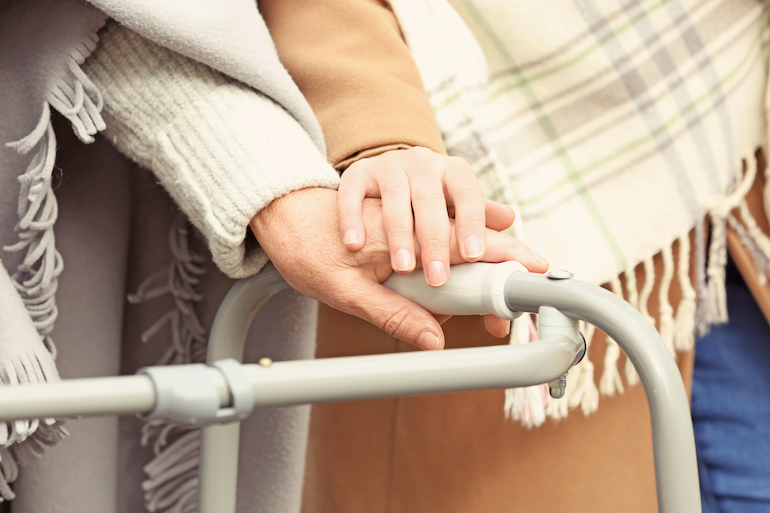Are Nursing Homes Liable for a Slip and Fall Case?

For senior citizens, falls are a leading safety concern. Older people who fall are more likely to break a hip or sustain other serious injuries. When families move a loved one to a nursing home, they expect the facility to keep them safe. But what happens when an elderly person is injured in a fall? Is the nursing home responsible? Does this constitute a slip and fall case?
A Growing Problem for the Elderly
Injuries from falls are increasing, especially among older adults. The number of senior citizens who died from falls increased by 30% over the last decade. According to the Centers for Disease Control (CDC), if this rate continues to rise, there will be seven fall deaths per hour by 2030.
One reason falls are so dangerous for the elderly is that many have osteoporosis or other bone diseases. This increases the likelihood of serious injuries such as hip fractures. Research shows many older people die or become permanently disabled from complications resulting from broken hips. In addition, nursing home residents often have dementia or take medications that can cause fatigue or dizziness. This increases the odds of an accident that will lead to a slip and fall case.
Why Nursing Home Residents Fall
Nursing home residents fall for a variety of reasons, many of which are the result of negligence. Here are some examples:
- Inadequate supervision of residents
- Poorly lit hallways and other areas
- Lack of grab bars, bedrails, handrails, alarms, and other safety features
- Loose carpeting and other hazards
- Insufficient care plans for at-risk residents
- Care plans are not properly implemented
- Poor (or no) fall prevention training for nursing home staff members
- Faulty walking aids such as walkers, canes, or other devices
Who Is at Fault in a Slip and Fall Case?
When a nursing home resident is injured in a fall, it can be difficult to establish who is responsible. The laws governing slip and fall cases in nursing homes are complicated. The facility may be liable because of a legal concept called “premises liability,” which relates to the property itself. However, if a resident falls because of inadequate supervision, the facility could be guilty of negligence. This is why it’s important to contact an experienced nursing home attorney as soon as possible. A knowledgeable lawyer will determine whether you have grounds to initiate a slip and fall case.
Be a Vigilant Family Member
Unfortunately, some nursing homes may cover up the fact that a resident was injured in a fall. Victims may not report falls because they have dementia or fear retaliation. Therefore, family members should be alert for signs of injuries that may have resulted from a fall. Symptoms may include bruises, cuts, sore muscles or difficulty walking.
If you suspect a family member is not being properly cared for, call us. Our qualified legal team will help keep your loved one safe and ensure you receive the compensation you and your family deserve.
Nursing home neglect law is complicated, but finding the right lawyer is simple.
Call 1-800-MALPRACTICE today for a free, no-obligation consultation.
Sources:
- https://www.cdc.gov/homeandrecreationalsafety/falls/adultfalls.html


